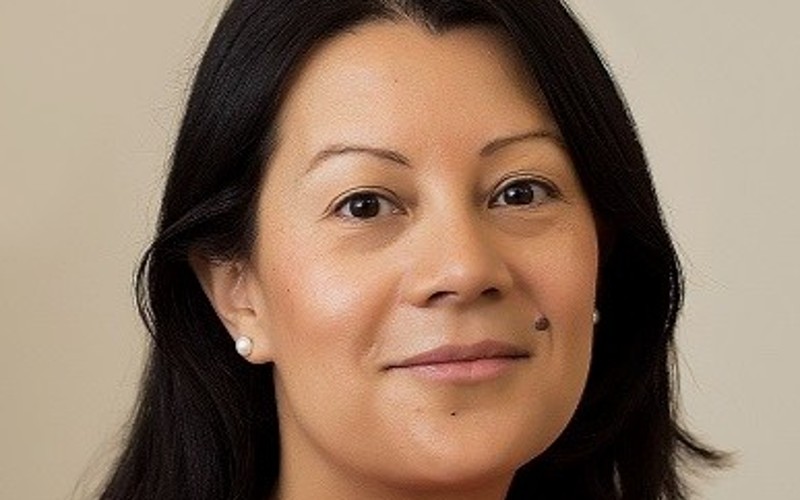Welcome to our MediaTech Insights report for 2024.
Published alongside our annual MediaTech 50 ranking, the report quantifies and reflects technology trends in media and the arts.
After our readers and an expert judging panel together decided the UK’s most innovative startups, scaleups and established technology firms serving the sector, we canvassed views from the companies and judges.
Trends
We asked the MediaTech 50 and judging panel to describe a particular trend they have noticed in MediaTech in the last year.
Judge Jessica Driscoll, director of immersive technology at Digital Catapult – the UK authority on advanced digital technology – says wider themes around sustainability and diversity and inclusion programmes have been picked up in media and the arts.
On the tech itself, Driscoll highlights spatial computing – “in the run up to Apple Vision Pro’s launch, where premium brands like Gucci and Disney have jumped on the wagon at the first opportunity” – while generative AI chatbots are personalising the retail experience and AI-generated video and imagery from large language models is now “hyper-stylised”.
Rob Sims is CEO of Liverpool-based Sum Vivas, ninth on this year’s ranking, and which develops AI-integrated digital humans.
“Audiences are demanding events and performances are more interactive creating experiential performances,” is a trend Sims highlights. “The use of AI, AR (augmented reality), virtual/Web3 and digital performers are now bringing this to life.
“Digital performers and digital assistants will become an integral part of events and performances, working alongside their human counterparts.”
Driscoll (below) expects to see more metaverse platform concerts live-streamed with higher fidelity and “big-ticket artists”.

Jacobi Anstruther, CEO of London-based IRIS Audio Technologies – which removes background noise from audio, a notoriously difficult task – adds: “As the CEO of an AI company, I find it interesting to review the space between the media’s attention to AI and the speed of adoption from the world of enterprise.
“Although there are undoubtedly innovators within the enterprise space, the mass adoption of AI on a corporate level will take longer than expressed in the media. The driving forces of this are security and legacy technologies, which do not have the power to run complex AI efficiently.
“The solution is to bring lightweight and versatile AI models to the market.”
Judge Laura Harper, a partner at law firm Lewis Silkin who advises the creative industries on commercial agreements and IP strategy, says companies in the film and TV sectors are looking at how they adopt AI tools.
“We can expect to see an increased focus on ensuring that existing contractual frameworks remain fit for purpose,” she says. “The SAG-AFTRA strike, which dominated headlines in the UK and US last year, included AI as one of the final negotiation points for the artists’ union.
“The Alliance for Motion Picture and Television Producers had been seeking the right to create digital replicas of deceased actors without requiring consent from a deceased estate or from SAG-AFTRA. The topic of digital replicas remains current and will continue to be debated this year.”
Anthony Karydis, CEO of London-based Mativision – a platform for interactive live 360 video and VR experiences – has seen an increase in demand for “VR-based solutions offering relaxation, stress-relief, immersive meditation and overall mindfulness improvement”.
What’s next
As for expected trends in the coming 12 months, Driscoll points to a shift to multi-modal AI.
“At the moment, AI is single-modal – e.g. speech to text, text to video – but there will be a shift soon where video+speech+text+3D objects are all combined to create more complex, nuanced experiences,” is her view.
She also anticipates a “connected ecosystem of things, where everything is more connected… an ‘IoT on steroids’ with inputs from the real world to virtual worlds and vice versa”.
For Karydis, the next 12 months will see a rise in AI-powered VR applications, while Anstruther expects a move from SaaS technologies to more buy-once models. “The reason for this is the level of internal talent now available to companies to build solutions that directly meet their needs,” he explains.
Ben Polkinghorne, founder & CEO of London’s Moveme – a platform for emotion-led AI movie recommendations – says a flood of AI-generated video will make “navigating the sea of options to find what truly resonates become ever-more daunting”.
He adds: “The real challenge lies in distinguishing between noise and content that will emotionally resonate: finding the treasure hidden within the digital deluge.”
Harper (below) points to the new Online Safety Act and the incoming Digital Markets Competition and Consumers Bill as evidence that we will see increased regulation for businesses in the media and tech space.

She adds: “The anticipated, rapid development of cloud gaming will continue to be discussed: the use of remote servers to play computer games is set to grow given the widespread adoption of 5G and ultra-fast low-latency internet.”
AI a force for good?
We asked the judges and MediaTech 50 companies if they believe AI has had a positive or negative impact on media and the arts to date – and whether they expect this influence to become more or less positive as the technology evolves.
Ryan Edwards, founder & CEO of Audoo – the London startup behind AI-powered monitoring tech for music royalties which tops this year’s ranking – says there are positive impacts which are not spoken about enough.
“Some AI technologies can bring the power of music to those who otherwise might not be able to access it. For musicians with disabilities that prevent them from picking up a guitar or handling a keyboard, AI can open up a world of musical possibilities for them,” he offers as an example.
“There are also so many creative uses of AI in music, many of which can make it a more accessible industry. For artists on a low income, AI can allow them to produce an album without spending a small fortune: software generative art websites can allow them to create artwork, album art and video content to accompany their music without having to struggle through the complex and expensive process of hiring an album artist.”
Anstruther agrees that AI is bringing significant efficiencies to media and the arts. “Creative scopes and boundaries are being broken; anything is possible,” he says. “AI is not a bubble and is here to stay.”
Karydis is not so convinced: “In the past year, AI has been used mostly to promote itself, showcasing diverse applications, not always with the same degree of usefulness or success. Its impact has not been widespread.
“I expect the influence of AI to increase, especially as developers focus on applications with quantifiable benefits to their users.”
Legal expert Harper believes AI has the potential to solve a number of challenges in the music industry including metadata, real-time music detection and personalised music discovery.
“AI may be used to monitor use and unauthorised commercialisation of music as well as providing means for transparent payment processes for rights holders,” she says. “As a result, we are expecting to see new licensing and remuneration models emerging.”
Audoo’s Audio Meter™, for example, has been specifically designed to cut through environmental noise and recognise the music played within commercial premises.
MediaTech 50 – UK’s most innovative media tech creators for 2024
Harper continues: “In the video games industry we can expect to see games containing AI-generated storylines that can be continually explored. Such developments in the potential use of AI in game development are a factor in the projected growth of the AI market in the games industry.
“In terms of risks, performers’ exposure to having their name and likeness used has increased due to new AI tools and this has been seen in recent reports concerning Drake, Oasis and The Weeknd.”
Driscoll also points to issues around protecting the rights of creators and deepfakes.
“Authenticity and provenance of ideas and craft are keystones of how we value art today,” she warns. “The market may become saturated with thousands of virtual/AI YouTubers or TikTok creators.
“Where there is a premium on ‘human-created content’ at the moment, there is no way to watermark any of this. What if AI could create a fake event or a conference like the BAFTAs? And create fake photos and fake posts on X or LinkedIn to promote their new ‘show’?
“Also, at the moment AI is restricted to LLMs controlled by large organisations like OpenAI, Google and the open source French LLM Mistral – but what if LLMs are unrestricted with no guardrails? Would this lead to more creativity, or more chaos?”
Anstruther highlights questions around “the manipulation of data, plagiarism, fraud and security”.
“Regulators must take this extremely seriously, as something as simple as impersonation and manipulation is now at the fingertips of motivated people. Where do we find the authenticity of a product, a company or an individual?”
Accessibility
How might accessibility and inclusivity in the sector be improved, in the view of the MediaTech 50 and judges?
“Accessibility in arts and media definitely needs to be improved – from representing minority groups to differently abled creators and consumers,” says Driscoll. “At the moment Apple has excellent accessibility features in the new Vision Pro, but you pay a premium for this. It should be standard practice for all hardware UX in the spatial computing space.
“AI can help to automatically dub content to under-represented languages now and create sign language and audio captions for blind people with less cost. Haptics and robots could be used more for remote creation purposes and to help assisted creation, when creators cannot use their limbs, for example… improved eye tracking and brain computer interface technology will help this process too.
“All of these ideas need to be supported by innovation programmes either funded by the corporate sector as CSR or the government as commitment to equality, to de-risk them for investors – as this goes beyond the usual types of business models that they would invest in.”
Sims of Sum Vivas wants to see “increased access to training and skills, with the ability for students to get real-world experience with business in their chosen fields”.
Simworx, based in Kingswinford, creates media-based attractions and motion simulation technology for theme parks.
Its digital content producer Nicole Sangster says there are few educational pathways into the industry. “It’s taken a few organisations in our industry to set up free programmes to help students learn the things that aren’t taught anywhere else in the UK.
“The USA, where our industry is more prevalent, have a lot of well-curated university courses while the UK does not – leading to a lack of specialism for graduates interested in themed entertainment, having to learn on the job.”
Metaverse
The buzz of the metaverse – where every day seemed to bring a huge funding round or claim of world-changing virtual environment technology – has passed.
The MediaTech 50 respondents believe the buzzword – which prompted Mark Zuckerberg to change Facebook’s corporate name to Meta – was overhyped.
“The explosion of ‘metaverse experts’ and the get-rich opportunities took away from its real uses by over-promising and under-delivering,” says Sims.
“Virtual worlds are active and growing and will become as important to business in the future as the internet is now. The adoption cycle will follow a similar path as the internet following the dot.com ‘boom to bust to boom’.”
Karydis agrees: “As a term, it has been overhyped. It has been used widely without the associated clarification of what it really is and how it could be used for the benefit of its users.
“In real terms, what the metaverse represents has been around for a long time in various forms and applications – only the wider public was not aware of this. I believe that as the hype subsides, we will see where the metaverse can really be effective and useful applications will start emerging.”
Anstruther answers: “It is all to come. The timing was out, as computing power was unavailable, and the technology had not been developed adequately at the time of the first buzz a couple of years ago.
“We are now seeing the beginning of the shift into a virtual world that is becoming more viable on a daily basis.”
At Digital Catapult, virtual environments and cyber physical systems span three areas that it defines as metaverse, advanced media production and digital twins.
“These areas all have a large amount of crossover and one of things that we are particularly interested in is creative spillover – what can enterprise and the industrial metaverse learn from the creative industries in particular with real time workflows, user engagement and interoperability?” asks Driscoll.
“Broadly speaking, the metaverse is an idea about how the next-generation of the internet could work. The idea implies that metaverse – as the future of the internet – is cyber physical in its nature and offers services and means of communication which are accessed via immersive or spatial human-computer interaction.
“It has been overhyped, but the reality is it is already here, has been for a long time and will continue to accelerate very quickly due to AI.”
Driscoll highlights 3D online map services, multiplayer games such as Roblox, Fortnite and Minecraft, augmented reality content such as Pokemon and location-based mobile games or apps as examples of the ‘metaverse’ which may be familiar to us.
“It’s apparent that there isn’t a canonical definition of the metaverse. The way that Digital Catapult has been thinking about the concept spans from enterprise to entertainment and everything in between.”
The ‘convergence blockers’ it has faced include immaturity of legislation, legacy issues with government support, access to facilities and funding, perceived volatility of the market – in particular around NFTs and blockchain – a lack of a reliable and skilled workforce which understands convergent technologies and integration of new revenue models with existing walled gardens such as Meta and Apple.
Funding landscape
On the funding question, our MediaTech 50 firms have mixed experiences.
Audoo’s mission of securing royalties for musicians from commercial plays has seen it backed by angel investors including Sir Elton John, Beatle Sir Paul McCartney and Bjorn Ulvaeus of Abba.
“Ours has been very positive since incorporation,” reflects Edwards. “Whilst our technology is complex, the challenges we are solving are clear and well-documented around the world.
“It certainly helps having legends like Sir Elton John, Bjorn Ulvaeus and MPL Ventures on the cap table – I was once told my investor base is better than the Rock ‘n’ Roll Hall of Fame!
“Over the years, I’ve sadly seen many startups come and go: my consistent observation is they either lacked a clear mission or message. Our product is very much the same as that I dreamed of, sat at my kitchen table with a blank piece of paper back in 2019.
“There are plenty of people looking to invest… the business plan and numbers have to be a given – it’s can you really show vision and ability to execute that secures the investment.”
IRIS, which serves world-class sports teams with its IRIS Clarity audio tech alongside other sectors, raised $7m in a Series A funding round last year. Led by Puma Private Equity, it was the firm’s first institutional investment.
It was previously backed by the Ojjeh family office, TAG Group and LLamasoft co-founder Toby Brzoznowski, all of whom followed on in the Series A.
“We have been successful in funding, but the conversation has changed,” says Anstruther. “We are in a period where PE and VC capital has to focus on commercially viable businesses, not just the excitement of growth without a clear path to revenue.
“There is no shortage of capital for the right companies.”
Mativision secured seed funding back in 2015 and 2016 but has not taken investment since.
“Fundraising in the UK since the pandemic has become very difficult, if not impossible,” says Karydis. “The wave of startups that consumed money but never delivered any real benefit have resulted in investors becoming more cautious.
“The post-Brexit environment and the international crises with multiple wars and tensions have not helped either. Overall, it seems to me that this is not a very promising time for companies seeking investment.”
Sims of Sum Vivas adds: “We have chosen not to fundraise to date; however, it is something we are considering for the future to allow us to continue to grow and expand.”


